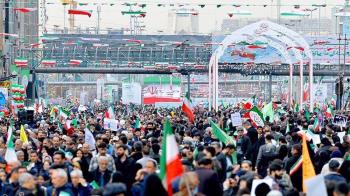Alwaght- Iran-Oman relations represent a unique pattern in a region fraught with challenges. In the ties of these two neighbors, historical considerations are mixed with geopolitical interests and their close ties have their roots in centuries of civilizational, cultural, and maritime interactions. In fact, their relations are not momentary and temporary, rather, they are based on mutual understanding, geographical proximity, and human connection.
Neutrality, Oman's historical tradition
Since the Islamic Revolution in 1979 in Iran, and amidst the emerging regional atmosphere of Arab-American-led hostility towards Iran, Oman has decided to go against the prevailing trend in its surroundings and adopt a policy of continuing close ties to Tehran. This approach was not simply a diplomatic choice on the part of Muscat, but a reflection of a strategic vision that believes in the importance of dialogue and relations with neighbors and sees balance and moderation as elements of strength. This vision has also been reflected in Muscat maintaining its position as an reliable mediator for all parties in the region.
Historically, the policy of Oman is based on the principle of positive neutrality, keeping away from regional competitions, contributing to reconciliatory efforts, and creating atmosphere for dialogue. Adopting this approach, Oman has become a reliable diplomatic basis. This role of Muscat has been evident in such a challenging case as Iran's nuclear program. The sultanate has been hosting talks between the US and Iran from 2012 to date, the latest round of which was held last week.
Share of economy in their relationship
Iran and Oman have their relations not limited to diplomacy and politics. Rather, they are engaged in business and trade ties, though so far the share of the economy in their relations has been small. Given the proposed projects, especially the Iranian gas pipeline that is planned to reach Sohar port of Oman, economy is expected to gain weight in their ties. The project, whose idea was raised in 2003, has remained suspended between the political will of the two countries and international restrictions, especially the sanctions imposed on Tehran, and despite its reactivation at various stages, it faces technical, financial and geopolitical challenges for implementation. However, this project is a rare opportunity to transform Oman into a regional hub for gas liquefaction and exports, taking advantage of its advanced infrastructure and geographical location. Also, given the export restrictions due to international sanctions, this plan provides Iran with a growing economic outlet and opens new horizons for the integration of Iranian gas into global markets. The Iranian gas pipeline to Oman will even allow for the expansion of the network to other regional destinations including India prospectively.
According to reports by official sources in Iran, Iran's trade balance with Oman reached positive $764 million last year. this figure was $570 million in 2022. Oman's share in Iran's total exports is 2.68 percent and in Iran's total imports is 1.08 percent. These figures show that although Iran-Oman trade relations have been on an upward trend in recent years, they are yet to reach the required level. Oman's importance as a trade partner for Iran is significant, not only because of its access to the Persian Gulf and African markets, but also because of the friendly business environment and supportive policies of the Omani government.
Cultural nature of Iran-Oman relations
Perhaps what gives their relations a special significance is their cultural and human aspect, since history of Oman and Iran is mixed with a complex of values, traditions, human interactions, especially in coastal regions like Musandam Governorate. Cultural exchanges and people-to-people meetings on both sides of the Persian Gulf have helped create an atmosphere of understanding between the people of the two countries, and this aspect of relations goes beyond political agreements.
Importance of President Pezeshkian's Oman visit
Iranian President Masoud Pezeshkian paid a visit to Oman on Tuesday. In the current conditions, Pezeshkian's visit to Oman is of great importance as it is taking place in a highly sensitive regional period. According to reports, several key issues, including bilateral cooperation, the future of the gas project, developments in Yemen and Syria, and Iran's relations with Western powers, will be discussed during the visit. The meeting reaffirms Tehran's continued trust in Oman's role and mutual desire to maintain a stable and effective relationship.
Strategic aspect of relations of two sides of the coast
In our look at Iran-Oman relationship, we cannot close our eyes to the Strait of Hormuz as a strategic factor in their ties since this strait provides a global energy artery and a common area of their mutual security collaboration. Tehran and Muscat have demonstrated a shared commitment to ensuring the security of navigation and coordination to counter threats with transnational origins, whether piracy or military tensions. In fact, it can be said that Omani-Iranian relations are based on rationality, mutual respect and long-term understanding, far from temporary slogans or snap stances. This is a relationship at a strategic crossroads through which Muscat seeks to consolidate its sovereign interests with international obligations in the role of an honest mediator. Oman knows it needs peace and stability for the Strait of Hormuz and in such conditions, it prefers to help settle challenges of Iran and the US via dialogue for peace to prevail in the strategic Strait of Hormuz.



























